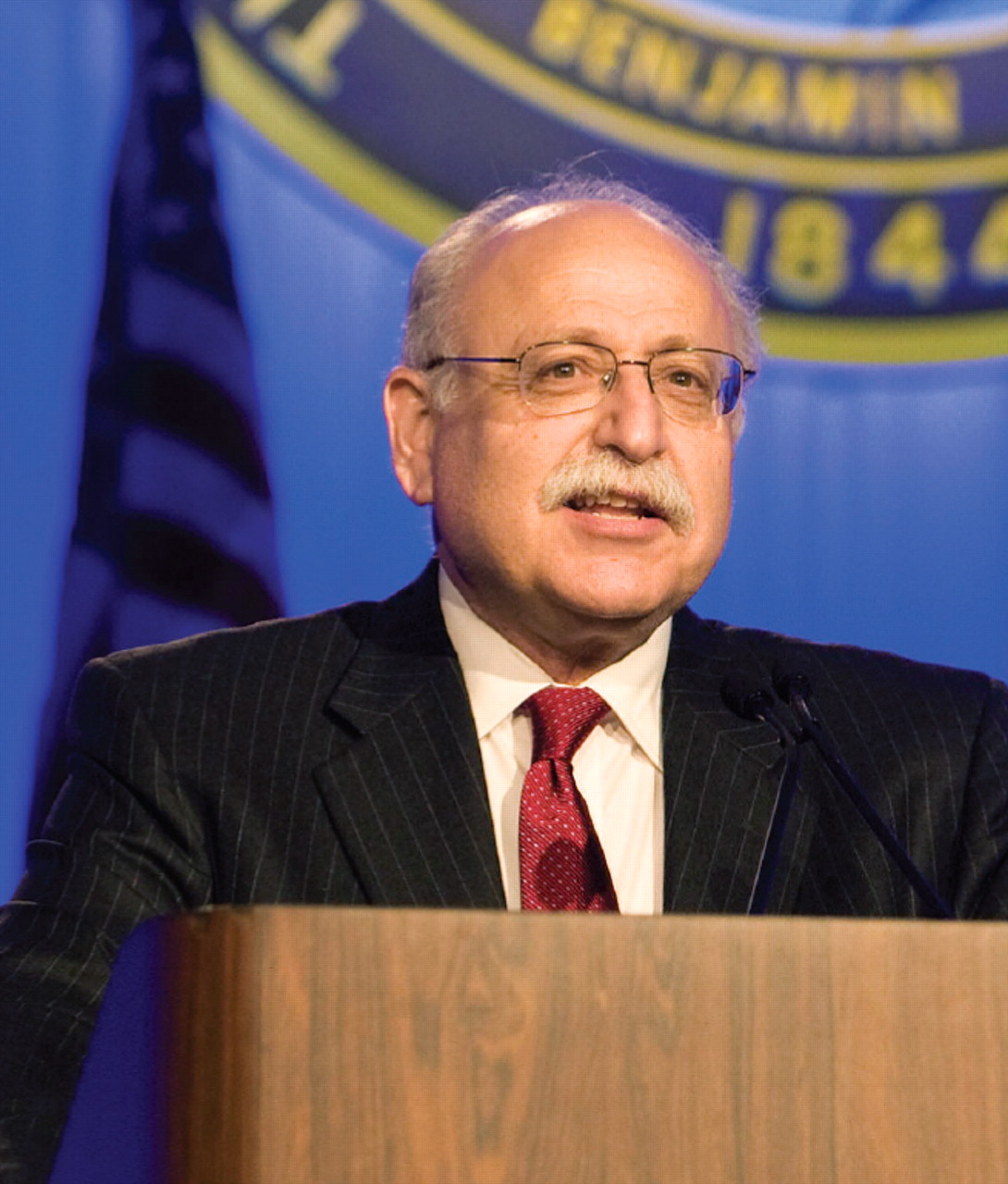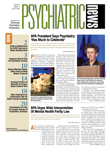It's time to restore pride in psychiatry.
That was one of the messages that incoming APA President Alan Schatzberg, M.D., brought to attendees at the Opening Session of APA's 2009 annual meeting last month in San Francisco.
Schatzberg outlined four priorities for his presidential year, the first of which is to restore a lost sense of pride in the profession of psychiatry. And he announced his theme for the presidential year: “Pride and Promise—Toward a New Psychiatry.”
“There has been considerable erosion in our own self-image in part because of antipsychiatry movements but also in part to some of the developments within our field,” he told attendees at the meeting.“ It is really time to take stock of where we are in 2009 and to right the craft.... With all our detractors, we need to keep our pride in what we do and remind ourselves how difficult and stressful it is to be a psychiatrist and how much we have to offer.”
Schatzberg recalled that when he first entered the field, psychoanalytic theories were dominant, and there was pride in what was perceived as a complex and difficult clinical craft. In later years, as psychiatry sought to expand its reach to the socially disadvantaged, the field began to cede some of its professional privilege.
“One issue is that, while we rightly became the defenders and voices of our patients who had largely been discriminated against in days before parity, we perhaps blurred our professional practices and identity with a social work/advocacy approach to the disadvantaged with chronic mental illness,” he said. “We trained other mental health professionals and often espoused an egalitarianism that reduced the importance of our own roles and suggested perhaps a medical degree was not necessary.”
Continuing his theme that psychiatrists need to reestablish a sense of pride in the profession, Schatzberg noted, “As the recent attacks on APA and leaders of the profession have occurred, it has struck me that some of the detractors in the press have voiced concern that some folks have earned too good a living, often by doing presentations,” he said. “I have heard from colleagues and directly from one reporter asking me about one of my colleagues having too high an annual income. I can assure you these detractors would not ask the same question of a surgeon or radiologist earning 10 times the amount paid our colleagues. None of us do what we do for money. Yet, it is also time for us to realize that our members and residents have never taken vows of poverty, and the complexity of the work deserves to be recognized. We need to ask ourselves how we have contributed to our own devaluation with which others seem to resonate, and we need to reverse the course. The rewards for our dedication should not be limited to a sense of pride, but we are also entitled to be paid commensurate to the challenge.”
A second priority, he said, is improvement of APA's annual meeting.“ We have already been meeting and are implementing a number of changes in the planning and evaluation of proposals that will, in the end, strengthen the program,” Schatzberg said. “We will provide more content in key areas that you, the membership, tell us you want to know more about. Whether you are interested in psychopharmacology or psychotherapy, we will provide sessions that are informative and useful. We will have tracks in those areas as well as child, geriatrics, and consultation-liaison.”
Schatzberg's third priority is to develop new ways of interacting with the pharmaceutical industry.
“There has been much spleen and rhetoric regarding pharma, and often this has distorted and blurred the facts and demeaned our members, our leaders, APA, and industry,” he said. “Some believe we should have no contact with industry. As someone who has worked in psychopharmacology for years, this makes little sense to me for many reasons.
“We need to sit down with industry and come up with ways of interacting that are acceptable to both sides and fit with future guidelines. I have pledged to follow up on recent initiatives and work with Dr. Scully [APA's medical director] and our Board of Trustees to effect a new partnership—a partnership we can be proud of for what it contributes to the well-being of our patients and our profession.”
Finally, Schatzberg outlined efforts that are under way to strengthen APA fiscally in a time of economic downturn.
“Dr. Stotland began working on this early in her presidency and asked me to lead a task force that consisted of past presidents and other leaders,” he said. “We proposed a reduction in the number of components from 14 councils and 73 non-award committees to nine councils and 14 committees, and we are in the process of implementing the plan. Although the seeming majority of members have been strongly in favor of these efforts, we recognize the concerns expressed by some. However, the new structure is more efficient and far, far less costly.”
But Schatzberg's most urgent message was the need for psychiatry to reclaim its professional confidence. “The time has come,” he said,“ to be proud of what we do and to advocate for what we and our patients justly deserve. ▪

